Southwest’s Boarding Process Is the Fastest Around—Will Other Airlines Copy It?
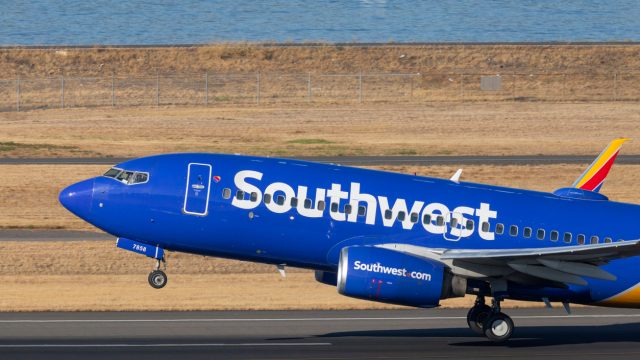
Just like going through airport security, boarding a plane is a part of traveling that many air passengers dread. However, unlike a TSA checkpoint, the experience of getting to your seat can vary depending on which airline you’re flying. Somewhat surprisingly, Southwest stands out from other major carriers for its unique way of calling people onboard by groups. And according to CNN, this unorthodox boarding process is the fastest around. Will other airlines copy the successful system? Read on to see if carriers will ever do away with the pre-takeoff mayhem.
RELATED: TSA Issues New Alert on What You Can’t Bring Through Security.
Southwest’s unusual boarding process is actually the fastest in the industry.
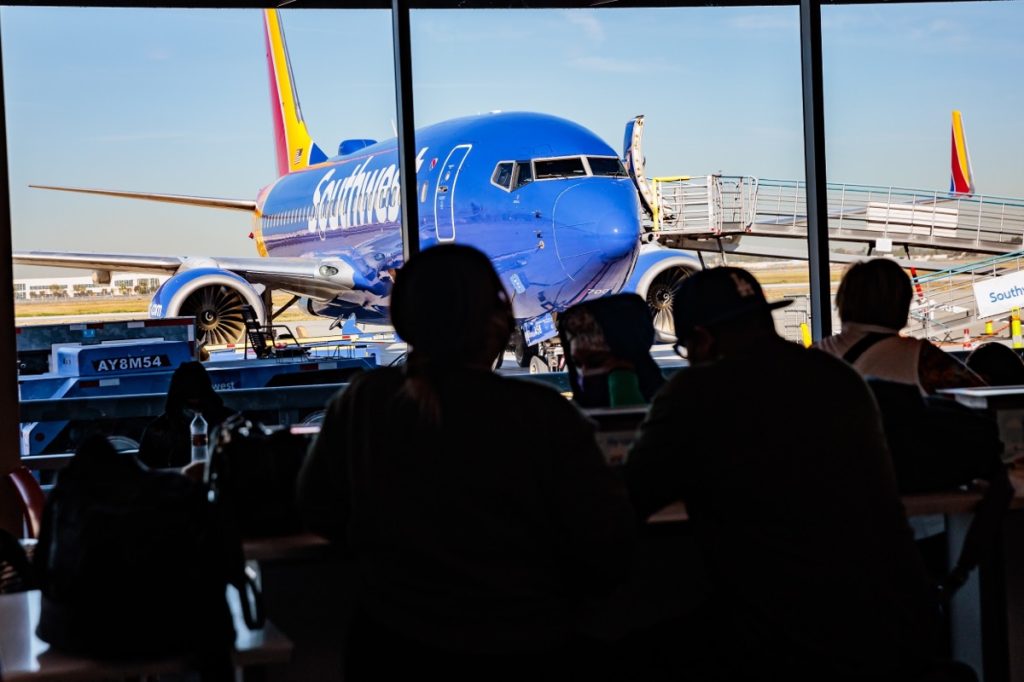
Despite the marvels of modern aviation, getting onto an airplane is often still a grueling and stressful experience. Airlines will typically call passengers with higher-tier tickets and status before filling seats by row number. Theoretically, the system should create an orderly line where travelers move quickly so the flight can get underway. But in reality, what typically ensues is a clog that extends down the jetway as flyers compete for overhead space for their carry-ons and attempt to get into their assigned seat.
But those who’ve flown Southwest know the pre-flight routine runs a little differently. The airline famously doesn’t assign seats to passengers and instead calls them aboard by assigned group—with the notable exception of families traveling with young children. The carrier also waives all checked bag fees on the first two pieces of luggage per passenger, making the usual fight for baggage space less of an issue and decreasing the time it takes to get buckled in.
The idea of allowing travelers to pick their own seats may seem chaotic at first blush. But data has shown that this system works: Southwest’s boarding process has been found to be the fastest in the industry, CNN reports.
RELATED: JetBlue Is Cutting Flights to 6 Major Cities, Starting Oct. 28.
However, experts think it’s unlikely that other major airlines will follow suit anytime soon.
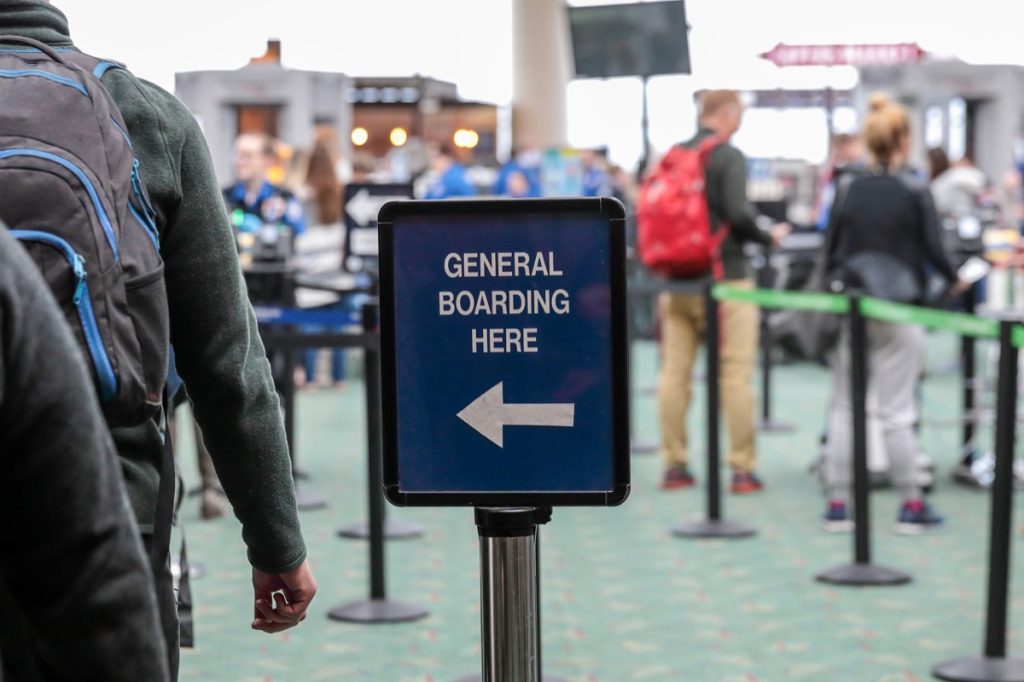
Travelers might assume that Southwest’s success with one of the more painful parts of flying would make it likely to become the industry norm instead of an outlier. However, experts say it’s still unlikely other airlines will change their boarding processes anytime soon.
“They don’t want to do random seating,” Massoud Bazargan, PhD, a professor at Embry-Riddle Aeronautical University in Florida and an expert in airline operations, told CNN. “They would deprive themselves money from seat assignments.”
While it may feel like the current status quo has been around forever, Bazargan points out that it actually wasn’t until 2008 that airlines first began charging for checked bags. The extra fees caused a seismic shift in passenger behavior, increasing the number of carry-ons that created a snowball effect of longer boarding times to get them situated, CNN reports.
Within a few years, carriers were able to effectively start charging passengers even more with other changes, including the addition of basic economy airfare that board last and don’t include a seat assignment. They also developed other costly tactics that convinced flyers to pay out, such as emphasizing frequent flyer programs and offering cobranded credit cards loaded with airline-specific perks, according to CNN. But while the new process helped airlines generate revenue, they also drove up the amount of time it takes to get passengers in their seats.
“The more zones and groups of boarding, the longer it takes,” Bazargan told CNN.
RELATED: Never Do This After Checking a Bag, Flight Attendant Says.
Researchers have devised several potential boarding processes that could save time.
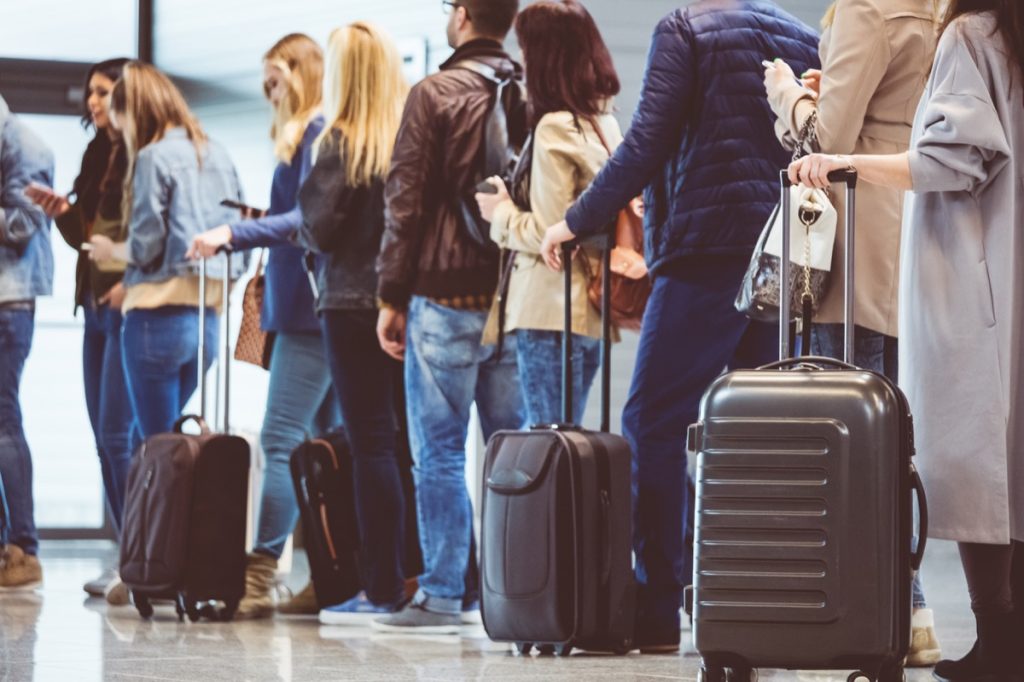
Even though complicating the boarding process has been profitable for airlines, not all have entirely abandoned the idea of making it more efficient. Researchers have even conducted experiments to compare different styles and devise faster systems to get planes on their way.
Traditional rear-to-front block boarding is arguably the most familiar style, which calls passengers based on their assigned seat numbers beginning at the back of the plane until it reaches the front. But even though it might seem logical to get those sitting further back out of the way, the style still causes snarls as passengers jostle for overhead space and locate their assigned places, Simple Flying reported earlier this year.
The less common style is Southwest’s random boarding method. While it may seem chaotic, the lack of assigned seats makes it easier for passengers to get seated without having to move past others or wait in longer lines.
United Airlines experimented with an even more innovative style known as the WILMA method. The system—which stands for “window, aisle, middle” seat—calls passengers based on their seating assignment within a row, per Simple Flying.
A 2014 episode of the popular science show Mythbusters actually tested each process to determine how quickly they worked by reconstructing a plane with 173 seats. Perhaps unsurprisingly, results showed that rear-to-front boarding by far took the longest at 24 minutes and 29 seconds, according to Simple Flying. But time was drastically reduced by using other processes, with WILMA taking just 14 minutes and 55 seconds and random boarding winning at just 14 minutes and seven seconds.
Best Life reached out to Delta Air Lines, United Airlines, American Airlines, and JetBlue Airways for comment on any potential plans to change their boarding processes, and we will update this article with their response.
RELATED: Alaska Is Cutting Flights to 14 Major Cities After This Year.
Even Southwest has made some controversial changes to its popular boarding policies recently.
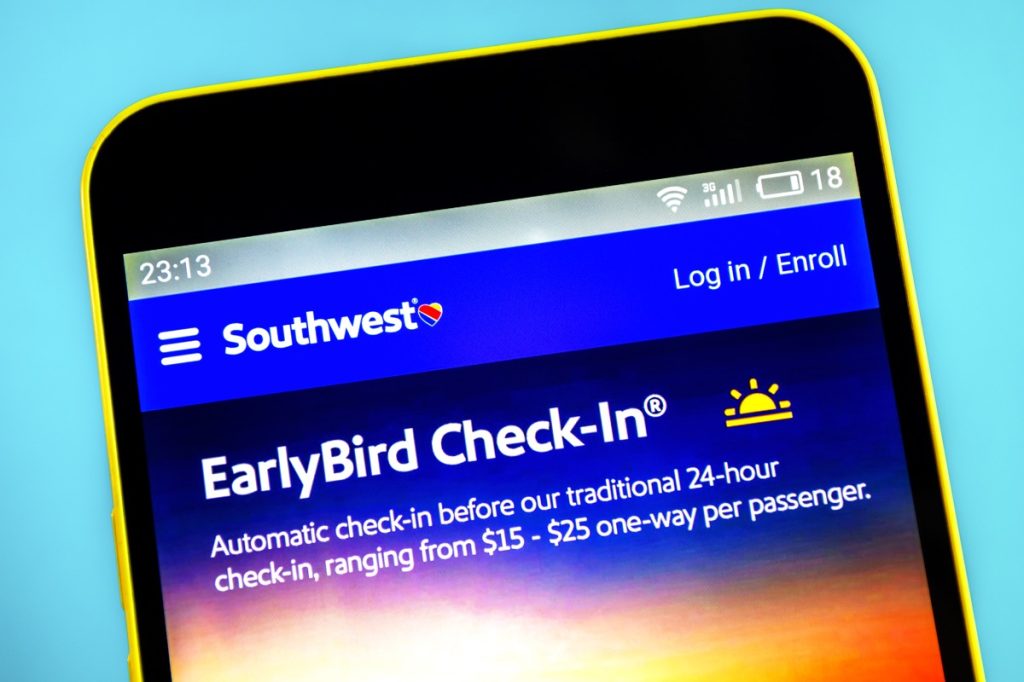
Just because it champions the most successful system doesn’t mean that Southwest hasn’t cashed in on the ability to make a little extra money during boarding. The airline began offering EarlyBird Check-In, which allows passengers to pay $15 or more to secure an earlier boarding group and access to seats. It also introduced pricier Business Select tickets, a separate fare group that guarantees those passengers one of the first 15 boarding spots and can cost as much as $85 extra, View from the Wing reports.
But even though the overall process might be quicker, the airline recently created some controversy when it announced it would be limiting the number of EarlyBird Check-In spots on certain flights as of Aug. 15. Southwest customers quickly reacted to changes on social media, with some saying they would switch to different airlines as a result.
Still, the airline said it was still trying to improve things for its passengers. “Many initiatives are underway across the company to modernize the customer experience and win more customers,” Southwest spokesperson Tiffany Valdez previously told Best Life. “This focus brings an opportunity to evolve our fare and ancillary products, while maintaining the value they bring to our customers.”
RELATED: For more up-to-date information, sign up for our daily newsletter.